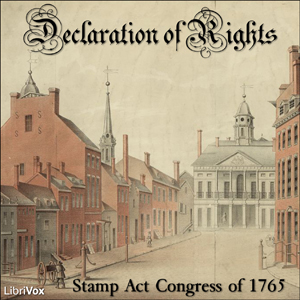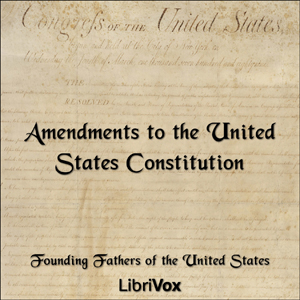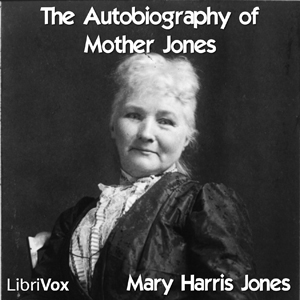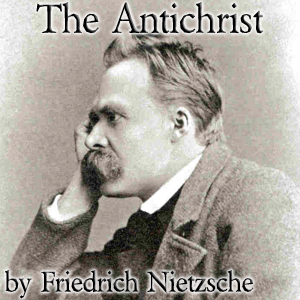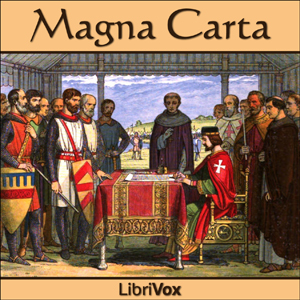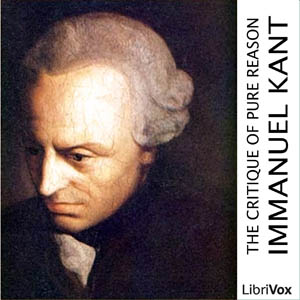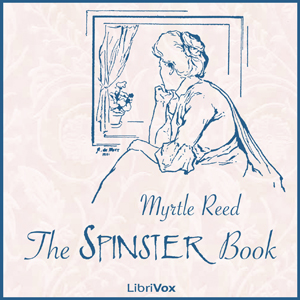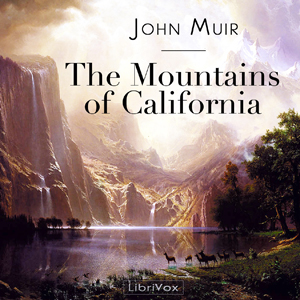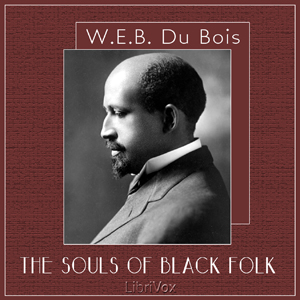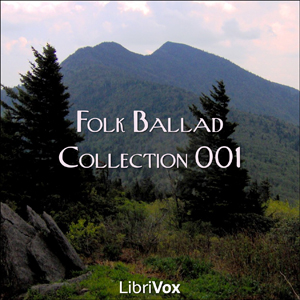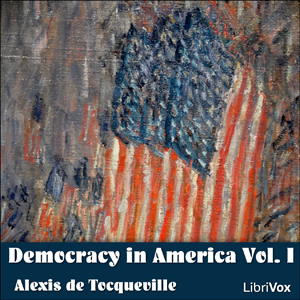This is a true account by American woman journalist who, in 1889, set out to see whether she could beat the fictional journey in Jules Verne’s 1873 novel, Around the World in Eighty Days. Wearing one dress and carrying one handbag, Elizabeth Cochrane Seaman (pen name “Nellie Bly”), reported her travels back to avid readers in America. (Summary by Mary Reagan)
18 episodes
First published in 1886 at Nietzsche’s own expense, the book was not initially considered important. In it, Nietzsche denounced what he considered to be the moral vacuity of 19th century thinkers. He attacked philosophers for what he considered to be their lack of critical sense and their blind acceptance of Christian premises in their considerations of morality and values. Beyond Good and Evil is a comprehensive overview of Nietzsche’s mature philosophy.
(Summary from Wikipedia)
10 episodes
On June 8, 1765 James Otis, supported by the Massachusetts Assembly sent a letter to each colony calling for a general meeting of delegates. The meeting was to be held in New York City in October. Representatives from nine colonies met in New York. Though New Hampshire, Virginia, North Carolina and Georgia did not send delegates, the Assemblies of those missing colonies nonetheless agreed to support the works of the Congress. The meetings were held in Federal Hall in New York, and the delegates assembled on October 2. They spent less than two weeks in discussion and at their final meeting on October 19, 1765 adopted the Declaration of Rights and approved its use in petitions to the King and two letters to Parliament. The Declaration of Rights and Grievances raised thirteen points of colonial protest. (Summary from Wikipedia.org)
1 episodes
The Amendments to the Constitution of the USA are a continuously modified document that attempts to secure all basic and other rights for American citizens. The most recent amendment was made in the early 1970's during the Vietnam war; this amendment lowered the voting age to 18.
The first ten amendments (A.K.A. the Bill of Rights) was made by the founding fathers shortly after the actual constitution was made. The Bill of Rights covers all those things that the settlers found wrong with the rule of King George III of England. Such as: Quartering of soldiers, Freedom of speech, and Search and seizure. (Summary by Shurtagal)
6 episodes
Our Island Story was first published in 1905 and became an instant classic. Beginning with the Romans and following the triumphs and foibles of the good, not so good and the downright despicable figures of history; we are treated to a dazzling montage of kings, queens, barons, knights, explorers, movers and shakers that have played a key role in the history of England. Marshall freely mixes folk tale with historical fact and in so doing paints a very vivid picture of the past in a style reminiscent of all that is finest in the children’s story telling tradition.This is the first section of that work and will carry you from the time when Tacitus first sang the praises of Britannica to his Roman readers up to the vicious and bloodthirsty confusion that is the War of the Roses (about 1500 years). (Summary by Jim)Part 2 of this book may be found at http://librivox.org/our-island-story-part-2-by-he-marshall/.
55 episodes
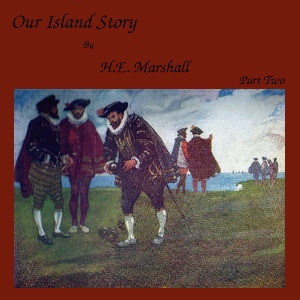
Our Island Story was first published in 1905 and became an instant classic. Beginning with the Romans and following the triumphs and foibles of the good, not so good and the downright despicable figures of history; we are treated to a dazzling montage of kings, queens, barons, knights, explorers, movers and shakers that have played a key role in the history of England. Marshall freely mixes folk tale with historical fact and in so doing paints a very vivid picture of the past in a style reminiscent of all that is finest in the children’s story-telling tradition. This is the second section of that work and will carry you from the convoluted and bloody ‘Wars of the Roses’ up to the death of Queen Victoria and the resolution of the Boer War. Please be advised that this book was written in the early years of the 20th century and there will be words and phrases used then, in all innocence, that are considered politically incorrect in this age. It’s perfectly fine for children to listen to but please ensure there is someone on hand who can explain these terms in a mature fashion.(Summary by Jim)Part 1 of this book may be found at https://librivox.org/our-island-story-part-1-by-he-marshall/.
57 episodes

Mary Everest Boole (1832-1916) was born Mary Everest in England and spent her early years in France. She married mathematician George Boole. She was the author of several works on teaching and teaching mathematics in particular.
This short book, Philosophy and Fun of Algebra, is meant to be read by children and introduces algebra and logic. She uses the word “algebra” broadly, defining it as a “method of solving problems by honest confession of one’s ignorance”. Using this definition, Boole introduces, in a conversational manner, the concepts of logic and algebra, illustrating these concepts with stories and anecdotes, often from biblical sources. At times, her discussion seems somewhat mystical, speaking of the imagination and angels as messengers which guide one toward the next step in a logical investigation. Boole ends the book with a reminder that algebra’s essential element is “the habitual registration of the exact limits of one’s knowledge” and a call for the public to keep this principle in mind when encountering any situation.
(Summary written by Patricia Oakley)
18 episodes
Rabindranath Tagore was a Bengali poet, philosopher, visual artist, playwright, composer, and novelist whose work reshaped Bengali literature and music in the late 19th and early 20th centuries. He became Asia’s first Nobel laureate when he won the 1913 Nobel Prize in Literature.
Sadhana is a collection of essays, most of which he gave before the Harvard University, describing Indian beliefs, philosophy and culture from different viewpoints, often making comparison with Western thought and culture.
(Summary by Peter Yearsley/Wikipedia)
8 episodes
Ecclesiastes (or The Preacher) is the twenty-first book of The Bible. The author of this book is unknown but is considered by many biblical scholars to be Solomon.The author describes how all endeavors in life are in vain and a grasping for the wind, since all comes to naught in the end when we return to the dust from whence we came. The generations to come will not remember us. In the end, The Preacher admonishes us that the only purpose for man is to eat, drink and perform his labors under the sun and to do it with happiness and devotion to God.This reading comes from the American Standard Version (ASV) of The Holy Bible. (Summary by Robert Garrison)
1 episodes
The title, "History of Holland," given to this volume is fully justified by the predominant part which the great maritime province of Holland took in the War of Independence and throughout the whole of the subsequent history of the Dutch state and people.(Summary from book prologue)
37 episodes
The Universal Declaration of Human Rights was ratified in 1948 by the United Nations General Assembly. It defines the fundamental rights of individuals, and exhorts all governments to protect these rights. The UN has translated the document into over three hundred languages and dialects. This audiobook includes readings in 21 languages, by LibriVox volunteers. (summary by David Barnes)
Section 14 was recorded by Jennifer Larson
Section 22 was recorded by Jacek Wojski
24 episodes

The Pirates of Penzance; or, The Slave of Duty is a comic opera in two acts, with music by Arthur Sullivan and libretto by W. S. Gilbert. The story concerns Frederic, who, having completed his 21st year, is released from his apprenticeship to a band of tender-hearted pirates. He meets Mabel, the daughter of Major-General Stanley, and the two young people fall instantly in love. Frederic finds out, however, that he was born on 29 February, and so, technically, he only has a birthday each leap year. His apprenticeship indentures state that he remains apprenticed to the pirates until his 21st birthday, and so he must serve for another 63 years. Bound by his own sense of duty, Frederic's only solace is that Mabel agrees to wait for him faithfully. (Summary from Wikipedia)Cast
Narrator: Julie VW
Frederic: Karen Savage
Pirate King: StephenC
Samuel: Phil Chenevert
Ruth: Liberty Stump
Major-General Stanley: Kevin S. Mellis
Mabel: Catherine Eastman
Edith: BookAngel7
Kate: Ezwa
Isabel: JemmaBlythe
Sergeant of Police: John Fricker
Chorus:Alex Foster
BookAngel7
Catherine Eastman
Ezwa
Fred DeBerardinis
Helen Song
Henry Frigon
Jane Smith
JemmaBlythe
John Fricker
Karen Savage
Liberty Stump
Miriam Esther Goldman
StephenC
ToddHW
2 episodes
ll Principe (The Prince) is a political treatise by the Florentine writer Niccolò Machiavelli, originally called “De Principatibus” (About Principalities). It was written around 1513, but not published until 1532, five years after Machiavelli’s death. The treatise is not actually representative of his published work during his lifetime, but it is certainly the best remembered one.
(Summary from Wikipedia.org)
16 episodes
California, the land of sunshine and roses, with its genial climate, its skies as blue as the far-famed skies of Venice, and its pure, life-giving air, invites the lover of nature to take long tramps over hill and dale, mountain and valley, and to search out new trails in the rugged mountains.(Quote from section 2: Brook and Waterfall).
21 episodes
Mother Jones (Mary Harris Jones) was a legendary labor organizer. She was a founding member of the International Workers of the World (the IWW, or the Wobblies), and was active in the United Mine Workers and the Socialist Party of America. (Summary by Denny)
27 episodes
This speech was given March 23, 1775, at St. John's Church in Richmond, Virginia, and is credited with having singlehandedly convinced the Virginia House of Burgesses to pass a resolution delivering the Virginia troops to the Revolutionary War. In attendance were Thomas Jefferson and George Washington. Reportedly, the crowd, upon hearing the speech, jumped up and shouted, “To Arms! To Arms!”
(Summary from Wikipedia)
1 episodes
This pamphlet was published in the early 20th century by the United States Rubber Company so that "coming generations of our country ... have some understanding of the importance of rubber in our every day life... We believe the rubber industry will be better off if the future citizens of our country know more about it." Learn about Christopher Columbus's discovery of rubber, how the crafty British entrepreneur, Wickham, managed to smuggle rubber seedlings out of Brazil, and how rubber manufacturing came to be a "peculiarly American industry." The myriad uses of rubber from a century ago are also elaborated in considerable detail - everything from submarines to Keds to dentures. (Summary by Judy Bieber)
1 episodes
The Song of Songs is the twenty-second book of The Bible and was authored by Solomon. In some translations, this book is entitled The Song of Solomon. It is also known as The Best Song.
Replete with metaphor, this book is a love song that describes the wooing and wedding of a lowly but very comely shepherdess to the great king Solomon. It speaks of the joys of love as well as its heartaches.
Although this reading was performed by a single male voice, the book has three main speakers: the Shulamite shepherdess, King Solomon and a chorus by the daughters of Jerusalem. Biblical scholars also note the allegorical depictions of God as King and the bride as Israel. In New Testament doctrine, the bride is thought of as the Church and Christ as King.
The Song of Songs is one of the Wisdom Books. This reading comes from the American Standard Version (ASV) of the Holy Bible.
(Summary by Robert Garrison)
1 episodes
Lao-Tze's Tao Teh King illuminates The Tao: a guiding principle of the universe and all within it. By exploring the nature of dualities and complements, Lao-Tze dissects strength and weakness; presence and absence; life and death. The Tao Teh King has served as a foundation for centuries of philosophy and wisdom.(Summary by Eric S. Piotrowski)
9 episodes
In diesem vielzitierten Essay aus dem Jahre 1851 ist Schopenhauers generell herablassende Einstellung zu Frauen zusammengefaßt. Frauen, laut Schopenhauer, sind Wesen zweiter Klasse mit weniger Vernunft als Maenner, und sind biologisch zur List und Intrige getrieben... Schopenhauers dominante Mutter Johanna, eine bekannte Schriftstellerin, wird oft als Ursache für die Frauenfeindlichkeit ihres Sohns genannt.
(Zusammenfassung von Gesine)
1 episodes
William Dean Howells (1837-1920) became fast friends with Mark Twain from the moment in 1869 when Twain strode into the office of The Atlantic Monthly in Boston to thank Howell, then its assistant editor, for his favorable review of Innocents Abroad. When Howells became editor a few years later, The Atlantic Monthly began serializing many of Twain's works, among them his non-fiction masterpiece, Life on the Mississippi. In My Mark Twain, Howells pens a literary memoir that includes such fascinating scenes as their meetings with former president Ulysses Grant who was then writing the classic autobiography that Twain would underwrite in the largest publishing deal until that time. But it is also notable for its affectionate descriptions of his friend's family life during Howell's many visits to the Twain residences in Hartford and Stormfield. (Summary by Dennis Sayers).
24 episodes
Thomas Huxley, known as “Darwin’s Bulldog” for his championing and development of Darwinism, was perhaps the most important Victorian biologist after Darwin himself. This speech to the Metaphysical Society in 1870 is one of Huxley’s best known texts outside the sphere of his specialism, and remains read today by students of philosophy. In it, Huxley argues from the results of vivisection to metaphysics. (Summary by CarlManchester)
1 episodes
The miniature novel Helsinkiin by Juhani Aho was published in 1889. A psychological novel about a young man’s stepping into adult life, it also touches the then heated language politics as Finnish was emerging as a language of academia in the bilingual country. Aho (1861 - 1921) was among the first professional writers in Finland. This reading is in Finnish.
(Summary by Tuija Aalto)
6 episodes
Save for his raucous, rhapsodical autobiography, Ecce Homo, The Antichrist is the last thing that Nietzsche ever wrote, and so it may be accepted as a statement of some of his most salient ideas in their final form. Of all Nietzsche’s books, The Antichrist comes nearest to conventionality in form. It presents a connected argument with very few interludes, and has a beginning, a middle and an end. The reason to listen to this version is that H.L. Mencken, the famous journalist, turned Nietzsche's German into such direct, plain-spoken American English that it puts the haranguing philosopher right up in your face.
8 episodes
Wilde’s literary reputation has survived so much that I think it proof against any exhumation of articles which he or his admirers would have preferred to forget. As a matter of fact, I believe this volume will prove of unusual interest; some of the reviews are curiously prophetic; some are, of course, biassed by prejudice hostile or friendly; others are conceived in the author’s wittiest and happiest vein; only a few are colourless. And if, according to Lord Beaconsfield, the verdict of a continental nation may be regarded as that of posterity, Wilde is a much greater force in our literature than even friendly contemporaries ever supposed he would become.
It should be remembered, however, that at the time when most of these reviews were written Wilde had published scarcely any of the works by which his name has become famous in Europe, though the protagonist of the æsthetic movement was a well-known figure in Paris and London. (Summary from Introduction by Robert Ross)
100 episodes
This is a 1910 guide for those who wish to learn how to correctly (though maybe not "properly") create sentences, use figures of speech, write letters, and more, all while choosing the right words and doing it with style. Joseph Devlin's words may not all be relevant still today, but at least it sounds good when it's read aloud! (Summary by Andrew Lebrun).
16 episodes

Genesis is the story of the Creation and the people that followed it. The place is Canaan which is the land of Israel and the adjoining nations. The Book discusses the complex relationship between God and Mankind and portrays the travails of one particular family, the family of Noah, Abraham, Isaac and Jacob.
The book is priceless in its description of the custom of the day and the interaction within the family, tribe and Nation. But most of all the beauty of Genesis lies in the description of human behavior from its petty jealousies through unrelenting commitment for a worthy cause and love for family and friends.
We follow the trials and tribulation of the main characters as they deal with adverse circumstances and at times global annihilation. Important part of the book is also the recounting of the genealogy of the people from Adam and Eve to Joseph in Egypt. A connection is made to other different nations and tribes.
The Hebrew language is the original language of the Bible. Although Hebrew went through several transformations so far as the shape of the Alphabet, the text is consistent. (summary by Israel Radvinsky)
50 episodes

The Book of Job (American Standard Version) is presented in forty-two chapters and is one of the Old Testament Wisdom Books. The narrative chronicles the trials of Job as he is brought low from a comfortable and exalted position in his community to face loss of his fortune, children and health. Joined by three friends who initially commiserate and sympathize with him, there ensues a lengthy argument about the fate of the wicked and the just and much questioning about the character of God and the justice He metes out to his creations.
A quite lively and poetic discussion ensues among these wise elders and their suppositions and conclusions are eventually contested by a youth who enters the discussion toward the end. God has the final word in this narrative and Job is left to abjectly acknowledge that his complaints and knowledge mean little in the face of that which is so far beyond his ability to comprehend.
Debate regarding the meaning, purpose and author of this book is still hotly contested among biblical scholars. It is far beyond the scope of this summary to offer any conclusions regarding this work. The reader offers the words to the listener with no judgment or further explanation.
Even without deep examination, the poetic nature of the story offers many insights into facing and overcoming adversity.(Summary by Robert Garrison)
6 episodes

No matter how enlightened, chances are you've been raised around superstitious lore of one kind or another. Fanny Dickerson Bergen was one of the original researchers of North American oral traditions relating to such key life events and experiences as babyhood and childhood, marriage, wishes and dreams, luck, warts and cures, death omens and mortuary customs, and "such truck," as Huck Finn would say.You'll be surprised at how many of these old saws you'll know. Here's a quote from Chapter One, Babyhood:Monday’s child is fair of face,Tuesday’s child is full of grace,Wednesday’s child is sour and sad,Thursday’s child is merry and glad,Friday’s child is loving and giving,Saturday’s child must work for a living;But the child that is born on the Sabbath dayIs blithe and bonny, good and gay.--Baldwinsville, N. Y.All of these readings are as short as 5 minutes and no longer than 15 minutes, with plenty of pithy one-liners in the form of proverbs, always given with the locale they came from in Canada or the United States (with clear influences in British tradition). (summary by Denny Sayers)
21 episodes
William James (1842 – 1910) was a pioneering American psychologist and philosopher. He wrote influential books on the young science of psychology, educational psychology, psychology of religious experience and mysticism, and the philosophies of pragmatism and Radical Empiricism.Essays in Radical Empiricism is a collection edited and published posthumously by his colleague and biographer Ralph Barton Perry in 1912. It was assembled from a collection of reprinted journal articles published from 1904–1905 which James had deposited in August, 1906, at the Harvard University for supplemental use by his students. (Wikipedia)
15 episodes
The original document is in Latin so this can only be a fairly rough approximation of the actual content. The text used is the first version in the Gutenberg collection. - Magna Carta is the most significant early influence on the long historical process that has led to the rule of constitutional law today. Magna Carta was originally created because of disagreements between the Pope, King John and his English barons over the rights of the King. Magna Carta required the king to renounce certain rights and respect certain legal procedures and to accept that the will of the king could be bound by law.
(Summary by Jim Mowatt/Wikipedia)
1 episodes
The Imitation of Christ is widely considered one of the greatest manuals of devotion in Christianity. The life of Christ is presented as the highest study possible to a mortal, as Jesus’ teachings far excel all the teachings of the saints. The book gives counsel to read the scriptures, statements about the uses of adversity, advice for submission to authority, warnings against temptation and how to resist it, reflections about death and the judgment, meditations upon the oblation of Christ, and admonitions to flee the vanities of the world. (Summary drawn from Wikipedia).
13 episodes
The Critique of Pure Reason, first published in 1781 with a second edition in 1787, has been called the most influential and important philosophical text of the modern age.Kant saw the Critique of Pure Reason as an attempt to bridge the gap between rationalism (there are significant ways in which our concepts and knowledge are gained independently of sense experience) and empiricism (sense experience is the ultimate source of all our concepts and knowledge) and, in particular, to counter the radical empiricism of David Hume (our beliefs are purely the result of accumulated habits, developed in response to accumulated sense experiences). Using the methods of science, Kant demonstrates that though each mind may, indeed, create its own universe, those universes are guided by certain common laws, which are rationally discernable. (Summary by Ticktockman)
48 episodes
Rufus Estes was born a slave in 1857 in Tennessee, and experienced first hand the turmoil of the Civil War. He began working in a Nashville restaurant at the age of 16, and in 1883 took up employment as a Pullman cook. In 1897, he was hired as principal chef for the private railway car of U.S. Steel magnates (the fin-de-siecle equivalent of today's Lear Jets for corporate travel). There he served succulent fare for the rich and famous at the turn of the 20th century. (Summary by Denny Sayers)
20 episodes
A cross between guidebook and social commentary, The Spinster Book gives clever and humorous insights on topics such as courting, handling men and women, love letters, marriage and spinsterhood. (Summary by Kristin Hughes)
10 episodes
LibriVox volunteers bring you twelve different recordings of The Tiger, by William Blake. This was the weekly poetry project for the week of December 3rd, 2006.
12 episodes
The LibriVox community wants to bring you a special treat for the 2006 Holiday Season. Here is a collection of traditional Christmas carols recorded by our wonderful voluteers. Enjoy! (Summary by Linda)
12 episodes
LibriVox's 2006 Christmas Colletion containing public domain short stories, essays, poems, and scripture passages recorded by a variety of LibriVox members.
26 episodes
This collection includes 40 different Christmas carols collected and read by Douglas D. Anderson, the creator of The Hymns and Carols of Christmas website, a public-domain collection of Christmas music containing over 2,600 hymns, carols and songs.
40 episodes

The Book of Tea was written by Okakura Kakuzo in the early 20th century. It was first published in 1906, and has since been republished many times. - In the book, Kakuzo introduces the term Teaism and how Tea has affected nearly every aspect of Japanese culture, thought, and life. The book is noted to be accessibile to Western audiences because though Kakuzo was born and raised Japanese, he was trained from a young age to speak English; and would speak it all his life, becoming proficient at communicating his thoughts in the Western Mind. In his book he elucidates such topics as Zen and Taoism, but also the secular aspects of Tea and Japanese life. The book emphasises how Teaism taught the Japanese many things; most importantly, simplicity. Kakuzo argues that this tea-induced simplicity affected art and architecture, and he was a long-time student of the visual arts. He ends the book with a chapter on Tea Masters, and spends some time talking about Sen no Rikyu and his contribution to the Japanese Tea Ceremony. (Summary from Wikipedia)
6 episodes
John Muir (1838–1914) was one of the first modern preservationists. His letters, essays, and books telling of his adventures in nature, and wildlife, especially in the Sierra Nevada Mountains of California, were read by millions and are still popular today. His direct activism helped to save the Yosemite Valley and other wilderness areas. The Sierra Club, which he founded, is now one of the most important conservation organizations in the United States. His writings and philosophy strongly influenced the formation of the modern environmental movement. (Summary from Wikipedia)
19 episodes
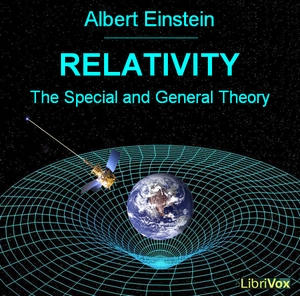
This is an introduction to Einstein’s space-bending, time-stretching theory of Relativity, written by the master himself. Special and General relativity explain the structure of space time and provide a theory of gravitation, respectively. Einstein’s theories shocked the world with their counterintuitive results, including the dissolution of absolute time. In this book he brings a simplified form of his profound understanding of the subject to the layperson. In the words of Einstein: “The present book is intended, as far as possible, to give an exact insight into the theory of Relativity to those readers who, from a general scientific and philosophical point of view, are interested in the theory, but who are not conversant with the mathematical apparatus of theoretical physics.” The book is challenging at times but, when approached patiently, proves itself one of the most lucid explanations of Relativity to be found anywhere. [Due to transcription or optical character recognition errors in creating online texts, and because of less-than-clear fonts in some printed texts, the variables as read in some of the equations here are not as Einstein intended. For example, the numeral ‘one’ has frequently been printed and read as the letter ‘I.’ In addition, some equations do not translate well into the spoken word. If you require completely accurate renditions of Einstein’s mathematical formulas, we suggest that you consult a published text.] — Summary written by Kelly Bescherer [and Laurie Anne Walden]
13 episodes
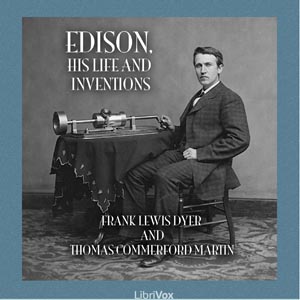
A detailed biography of Thomas Alva Edison, inventor of such things as the telephone, the microphone, the electric motor, the storage battery, and the electric light. In the words of the authors, "It is designed in these pages to bring the reader face to face with Edison; to glance at an interesting childhood and a youthful period marked by a capacity for doing things, and by an insatiable thirst for knowledge; then to accompany him into the great creative stretch of forty years, during which he has done so much. This book shows him plunged deeply into work for which he has always had an incredible capacity, reveals the exercise of his unsurpassed inventive ability, his keen reasoning powers, his tenacious memory, his fertility of resource; follows him through a series of innumerable experiments, conducted methodically, reaching out like rays of search-light into all the regions of science and nature, and finally exhibits him emerging triumphantly from countless difficulties bearing with him in new arts the fruits of victorious struggle." (written by Justin Barrett, with authors' quote taken from the work itself)
53 episodes
1819 gerät das Handelshaus, bei dem Johanna Schopenhauer ihr ganzes Geld angelegt hat, in Zahlungsschwierigkeiten. Beim anschließenden Vergleich verliert sie 70% ihres Vermögens. Ihr Sohn Arthur (der Philosoph), der sich vorher den Anteil am väterlichen Erbe auszahlen ließ, verweigert die Unterstützung. Sie muss sich jetzt selbst um ihre Einkünfte sorgen. Lange Reisen wie die nach England sind ihr nicht mehr möglich. Ihre Schriftstellerei wird zu einer wichtigen Einkommensquelle. Sie veröffentlicht Reiseerzählungen, Romane und Novellen. (Zusammenfassung aus Wikipedia)
75 episodes
The Souls of Black Folk is a well-known work of African-American literature by activist W.E.B. Du Bois. The book, published in 1903, contains several essays on race, some of which had been previously published in Atlantic Monthly magazine. Du Bois drew from his own experiences to develop this groundbreaking work on being African-American in American society. Outside of its notable place in African-American history, The Souls of Black Folk also holds an important place in social science as one of the first works to deal with sociology. (Summary from Wikipedia.org)
18 episodes
Bakunin's most famous work, published in various lengths, this version is the most complete form of the work published hitherto.
Originally titled "Dieu et l'état", Bakunin intended it to be part of the second portion to a larger work named "The Knouto-Germanic Empire and the Social Revolution" (Knouto-Germanic Empire is in reference to a treaty betwixt Russia and Germany at the time), but the work was never completed. (from book introduction)
6 episodes
Librivox’s first collection of sung and spoken folk ballads (13 in collection).
13 episodes
When Tocqueville visited America in the 1830s he found a thriving democracy of a kind he had not seen anywhere else. Many of his insightful observations American society and political system, found in the two volume book he published after his visit, still remain surprisingly relevant today. (Summary by the Bookworm)
45 episodes
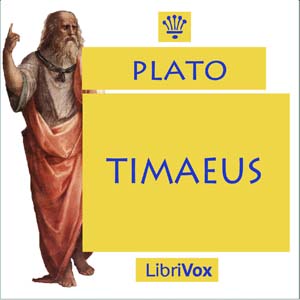
"Our intention is, that Timaeus, who is the most of an astronomer amongst us, and has made the nature of the universe his special study, should speak first, beginning with the generation of the world and going down to the creation of man..."'Timaeus' is usually regarded as one of Plato's later dialogues, and provides an account of the creation of the universe, with physical, metaphysical and ethical dimensions, which had great influence over philosophers for centuries following. It attributes the order and beauty of the universe to a benevolent demiurge - a 'craftsman' or god - fashioning the physical world after the pattern of an ideal, eternal one. The dramatic setting of the dialogue is the day after a discussion in which Socrates has described his ideal state - as in the 'Republic'. A conversation between Socrates, Critias, Hermocrates and Timaeus, including Critias' account of Solon's journey to Egypt (where he hears the story of Atlantis), soon gives way to the monologue by Timaeus that forms the bulk of the work.'Timaeus' is translated by Benjamin Jowett and his comprehensive introduction to and analysis of the work precedes the text itself, which he describes as "the growth of an age in which philosophy is not wholly separated from poetry and mythology". (Summary by Philippa)
20 episodes
General Pierre Gustave Toutant Beauregard was one of the senior commanders of Southern forces during the Civil War. It was he who initiated the hostilities by opening fire on Ft. Sumter in Charleston harbor, in April, 1861. In July of that year, having taken command of the Confederate Army of the Potomac, he triumphed in the first serious clash of the war, at Manassas, Virginia. His army, aided by reinforcements from Johnston's army in the Shenandoah Valley, routed a Federal army under General McDowell. Had it been his army instead that routed, it is possible the Civil War might have ended that same year, as the path to Richmond would have been wide open. This is his account of the battle, including the strategic situation leading up to it. As an afterward, he added a very revealing appraisal of the relations between him and Confederate President Jefferson Davis, and the reasons why, in his opinion, the South failed to win its war of secession.
3 episodes


